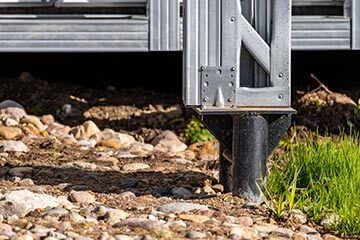It's possible to have more than 1 home insurance policy, and in some cases, it can work in your favour.
You might need separate cover for a second home, or choose to split buildings and contents between providers. The key is knowing when it makes sense, and when you could end up paying more than you need to.
This guide walks you through the pros and cons of multiple policies and how to avoid paying for cover you don't actually need.

Can a single property be covered by multiple home insurance policies?
Yes, a single property can be covered by more than 1 home insurance policy
You might split buildings insurance and contents insurance into separate policies - maybe to get the best deal, or because you've found multiple providers you like. That's totally fine.
That said, bundling them with the same insurer can often save you money. Some offer discounts for combining the 2 insurance types, and it can make things simpler if you ever need to claim.
What you don't want to do is double up on the same type of cover. Having more than 1 contents policy won't give you extra protection, but it will mean you end up paying more.
Can I claim more than once if I have more than 1 household insurance policy?
You might be able to claim under more than 1 policy - but it depends on the situation.
If both policies cover the same incident and are with different providers, they may agree to split the cost. This is known as policy coordination.
But trying to claim twice for the same damage, hoping for multiple payouts, could be considered fraud - even if it wasn't done on purpose.
Insurers also share claims data, so they'll know if you've already had a payout. It's always best to be upfront from the start.
How to prevent doubling up on home insurance
It's easy to end up with multiple policies running at the same time - especially if a policy renews automatically and you've already switched to a new provider.
Here's how to stay on top of it:
- Check if your policy renews automatically
- Make a note of your renewal date
- If you switch, let your old insurer know you're not renewing
- Keep your documents somewhere safe so they're easy to check
A quick once-over could save you paying twice for the same cover.
It's normal to keep your home insurance running while you're preparing to move. But once you've handed over the old keys and picked up the new ones, you'll need to do one of the following:
- Cancel the policy - make sure you tell your insurer so it doesn't auto-renew
- Transfer it to your new property - though you might need to update the cover or add extras, depending on your new home
Second home, rental properties & holiday homes
There's a few instances where it might make sense to have more than 1 home insurance policy.
If you own a second home, holiday home or rental property, you'll need a separate insurance policy for that place. Your main home insurance won't cover it.
Why? Because these properties are often:
- Not your main residence
- Left empty for longer stretches
- Rented or let out to other people
Standard home insurance doesn't usually cover those risks, so you'll need specialist insurance designed for how the property is actually used.







